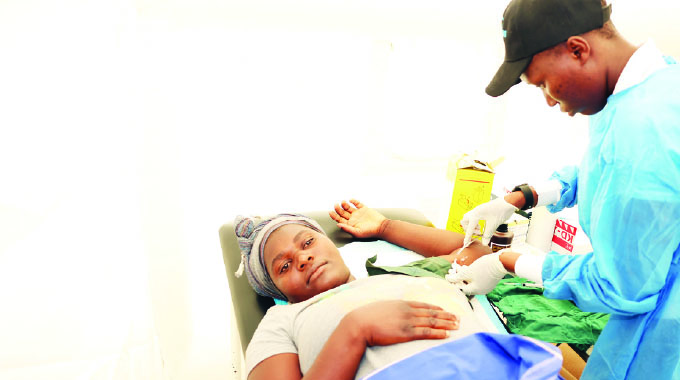Domesticate human trafficking protocol — Chinomona

Zvamaida Murwira Senior Reporter
All countries should bring the International Trafficking in Persons Protocol into their domestic national law as part of a global coordinated response to fight the scourge of human trafficking, Senate president Mable Chinomona has urged.
She said human trafficking had seen victims, mostly women, being forced into prostitution and slave labour in foreign countries.
Cde Chinomona was speaking on Monday at the 34th Forum of Women Parliamentarians at the ongoing 145th Inter Parliamentary Assembly in Kigali, Rwanda.
More than 200 Zimbabwean women had been victims of human trafficking in Kuwait, Saudi Arabia and other Middle East countries over the past few years, but 128 have since been repatriated.
“Zimbabwe has experienced cases of human trafficking of its nationals,” said Cde Chinomona. “Trafficked women from Zimbabwe have been lured by high paying domestic work in other countries. In recent years, the Zimbabwean Government learnt that about 200 of its female citizens had been trafficked after falling prey to human trafficking scams.
“Efforts were made by the Government to assist these women, but only 128 women were rescued and repatriated. The programme was conducted in collaboration with the International Organisation of Migration, which assisted with funding for medical and psycho-social support to the identified victims.”
Trafficking in persons, particularly women and children had become a global problem.
“The majority of women are lured by promises of attractive, well-paying jobs offered by agents of criminal networks without realising the full nature of their future employment or the conditions in which they will work,” said Cde Chinomona.
“In fact, most job opportunities for women migrants are in unregulated sectors such as farming, domestic and care work as well as the sex industry.
“Furthermore, women have less access to information on migration or job opportunities, recruitment channels and often have less preparation than men to cope with the working and living conditions in the countries of destination.”
To this end, said Cde Chinomona, the Trafficking in Persons Protocol is a commendable international agreement which calls on the criminalisation of trafficking of persons and well as calling for the provision of survivor centred institutions or policies for victims.
“Zimbabwe has domesticated some of the provisions of the international protocol on trafficking to include the criminalisation of offenders as well enacting survivor centred provisions for victims of trafficking,” she said.
It was noted that one of the provisions of the protocol called on member states to protect the privacy and identity of victims of trafficking in persons, including among other things making legal proceedings relating to such trafficking confidential.
Cde Chinomona noted that Section 5 of the Zimbabwe Trafficking in Persons Act, domesticated Article 6 (1) of the Protocol where vulnerable victims or witnesses of trafficking are protected as they give evidence in court.
“Furthermore, the Zimbabwean law allows for the compensation of victims of trafficking by the perpetrator, such as loss of income, damage to property, medical expenses among other things,” she said.
“I would like to say that women should be encouraged to seek adequate information before they embark on such perilous journeys. Through our representative function, as legislators, we also have a responsibility to share information with our constituents about these human trafficking schemes, so that young girls and women do not fall victim.”
The conference was running under the theme, “Gender equality and gender sensitive parliaments as drivers of change for a more resilient and peaceful world.”









Comments